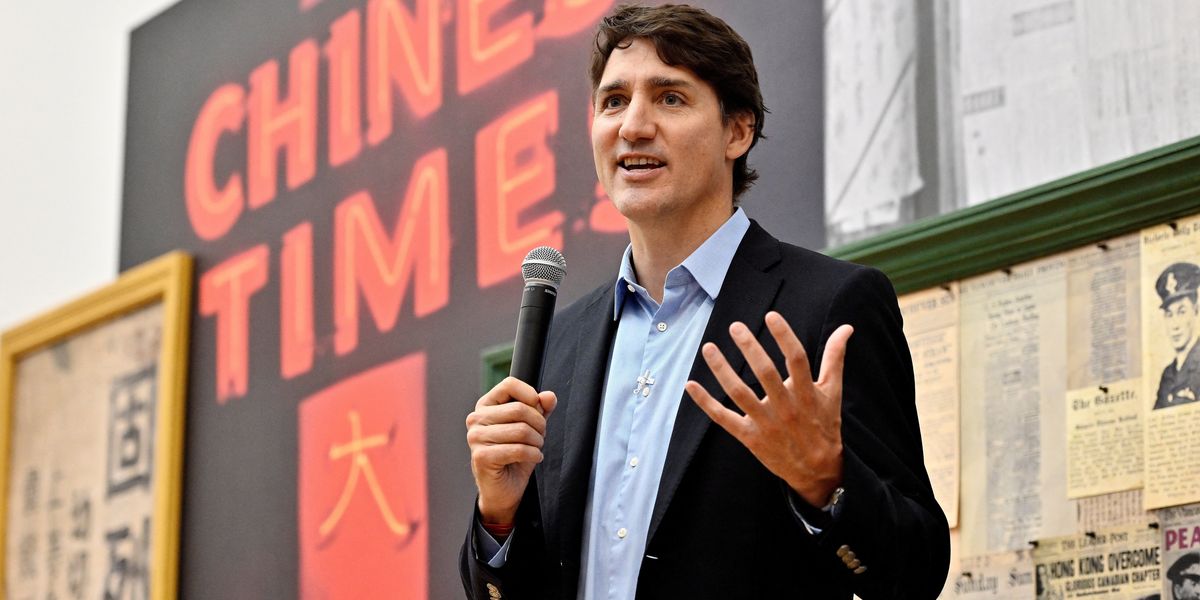Justin Trudeau on the Brink: A No Confidence Vote Looms as Liberal Support Dwindles
As Canada navigates a turbulent political landscape, Prime Minister Justin Trudeau finds himself facing an unprecedented challenge: the looming threat of a no confidence vote. Once a dominant figure in Canadian politics, Trudeau’s Liberal Party is now grappling with plummeting support, raising questions about his leadership and the future of his government.
A Shift in the Political Landscape
Since his initial victory in 2015, Trudeau has successfully led the Liberal Party to two additional electoral wins in 2019 and 2021. However, recent polling data indicates a dramatic shift in public sentiment. The latest Abacus Data survey reveals that the Conservative Party, led by Pierre Poilievre, has surged to a staggering 21-point lead over the Liberals. This shift is not merely a blip; it reflects a growing discontent among Canadians, particularly as the New Democratic Party (NDP) inches closer to the Liberals, trailing by just four percentage points.
The NDP’s decision to end its confidence and supply arrangement with Trudeau’s government on September 4 has further complicated the Prime Minister’s position. This arrangement, which had previously provided the Liberals with a degree of stability, has now evaporated, leaving Trudeau scrambling to secure support in the House of Commons.
Recent Electoral Setbacks
The political landscape has been further destabilized by recent electoral defeats for the Liberals. In a key by-election contest, Trudeau’s party lost the LaSalle-Emard-Verdun seat to the separatist Bloc Quebecois. The Bloc’s candidate, Louis-Philippe Sauvé, garnered 28% of the vote, narrowly edging out Liberal candidate Laura Palestini, who received 27.2%. The NDP also played a significant role in this defeat, capturing 26.1% of the vote and demonstrating their ability to siphon support away from the Liberals.
This loss is compounded by another recent defeat in Toronto-St. Paul’s, where the Conservatives claimed victory. With an upcoming by-election in Cloverdale-Langley City on the horizon, the Conservatives are poised to potentially flip another seat, while the NDP is expected to mount a strong challenge in Halifax.
The Call for a No Confidence Vote
In light of these developments, Conservative leader Pierre Poilievre has seized the opportunity to challenge Trudeau’s leadership. He has publicly urged NDP leader Jagmeet Singh to support a no confidence vote, framing it as a necessary step for accountability. Singh, however, has responded cautiously, emphasizing the need to prioritize the interests of Canadians over political gamesmanship.
The dynamics within the Liberal Party itself are also concerning for Trudeau. Alexandra Mendes, a Liberal MP representing a Quebec constituency, has voiced her constituents’ discontent, stating that many are calling for Trudeau to step down. "I didn’t hear it from two, three people – I heard it from dozens and dozens of people," Mendes remarked, highlighting a growing sentiment that Trudeau may no longer be the right leader for the party.
Historical Context of No Confidence Votes in Canada
Canada has a history of no confidence motions, with six successful votes in the House of Commons, four of which resulted from a loss of supply. The prospect of a no confidence vote against Trudeau is not just a theoretical exercise; it reflects a tangible shift in the political winds and the potential for significant change in governance.
Conclusion: The Future of Trudeau’s Leadership
As the political landscape continues to evolve, Trudeau’s leadership is under intense scrutiny. With the Conservative Party gaining momentum and the NDP positioning itself as a viable alternative, the Prime Minister faces a critical juncture. The upcoming months will be pivotal, as Trudeau must navigate the challenges of dwindling support, internal dissent, and the looming threat of a no confidence vote.
In a democracy, the will of the people is paramount, and as Canadians express their frustrations and desires for change, Trudeau’s ability to respond effectively will determine not only his political future but also the direction of the Liberal Party and the Canadian government as a whole. The question remains: can Trudeau rally support and regain the confidence of Canadians, or is he on the brink of political oblivion?
